US Army vet recalls ‘tense’ conversations after Korean Armistice
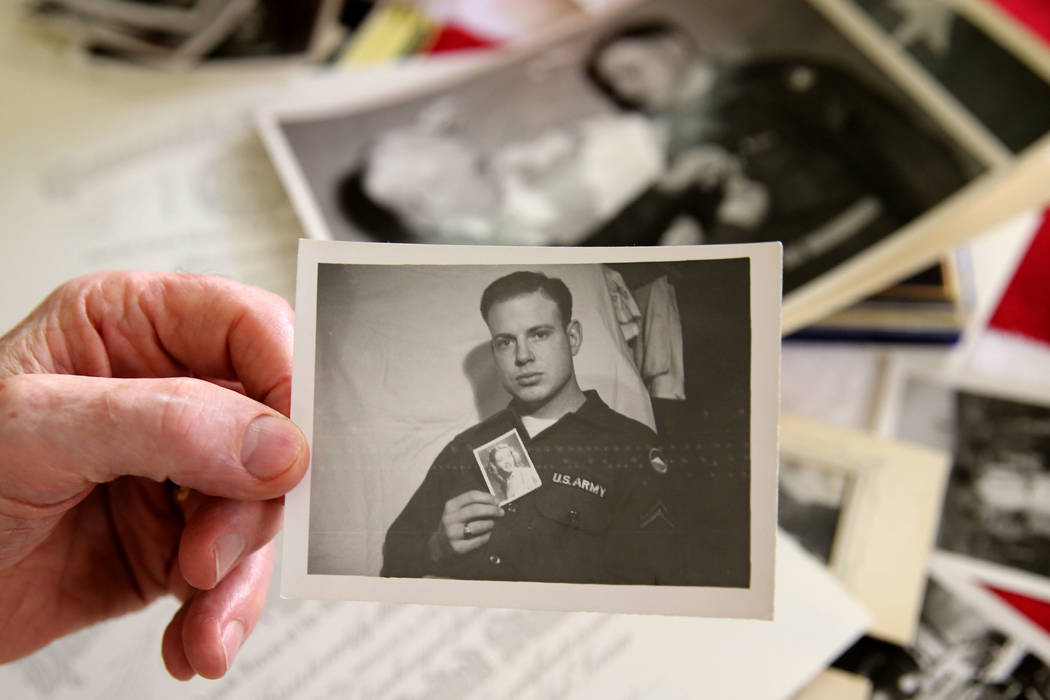
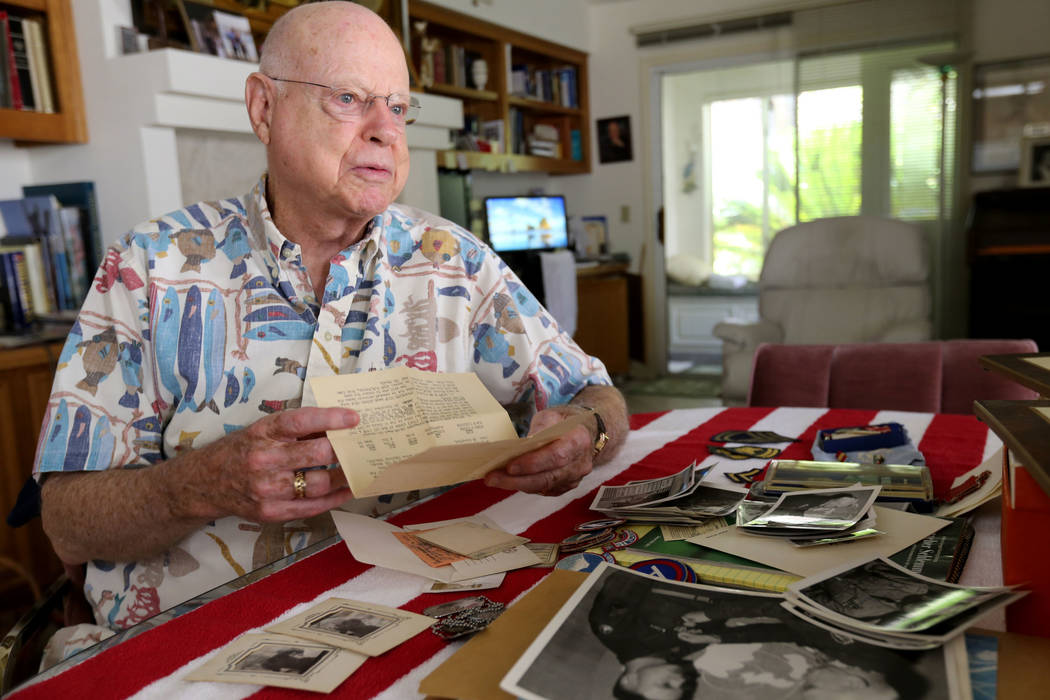
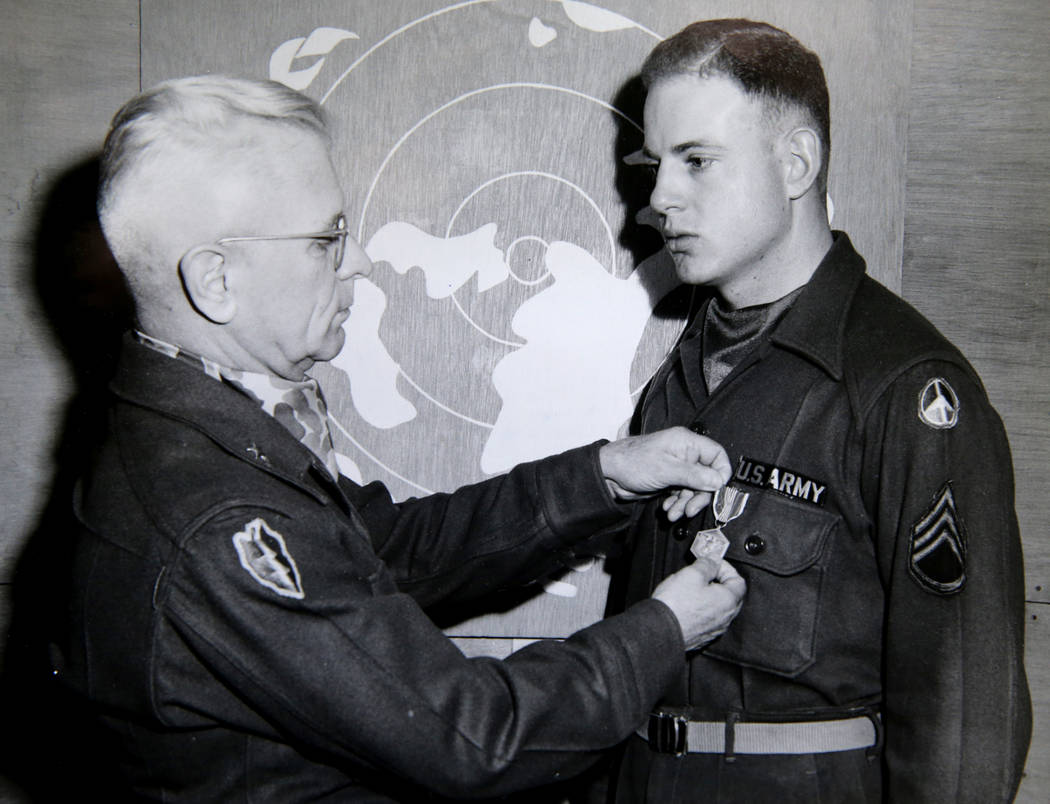
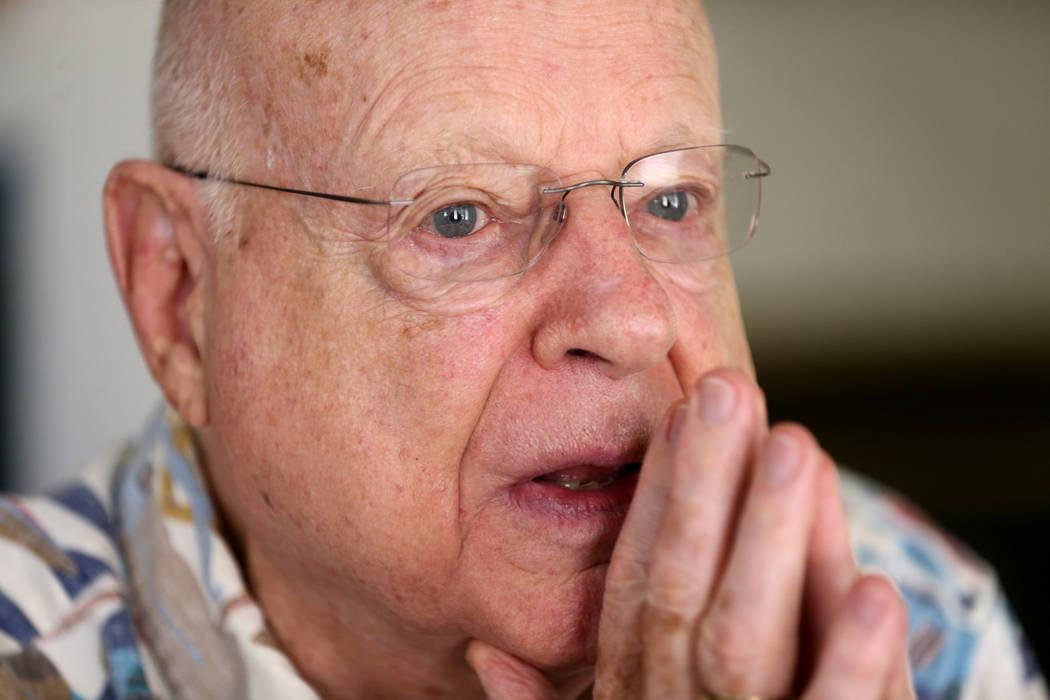
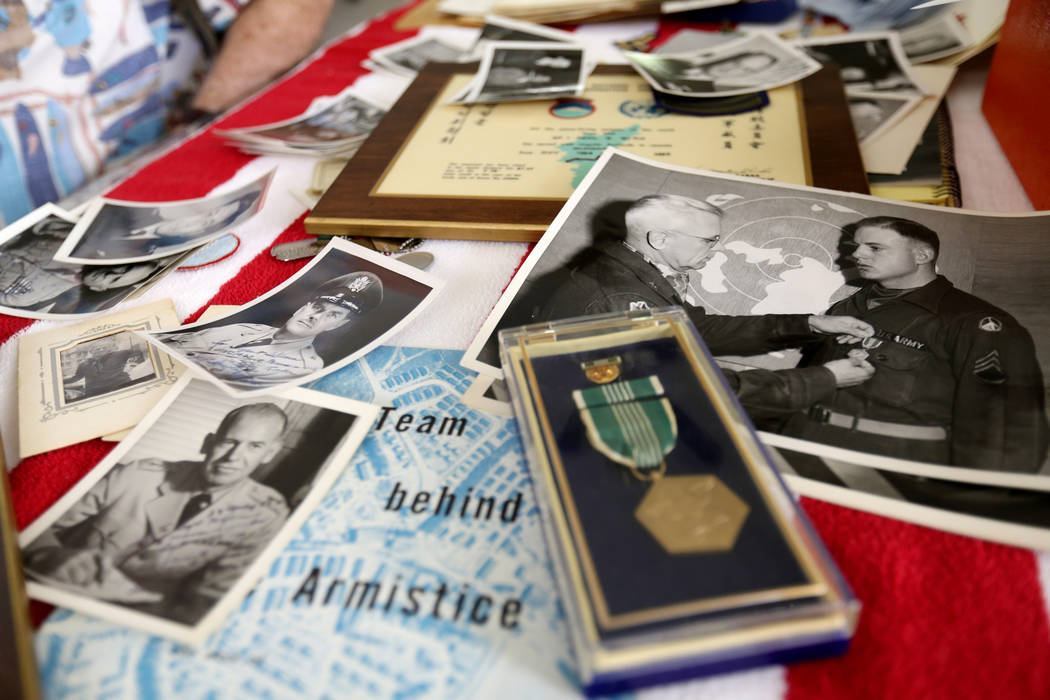
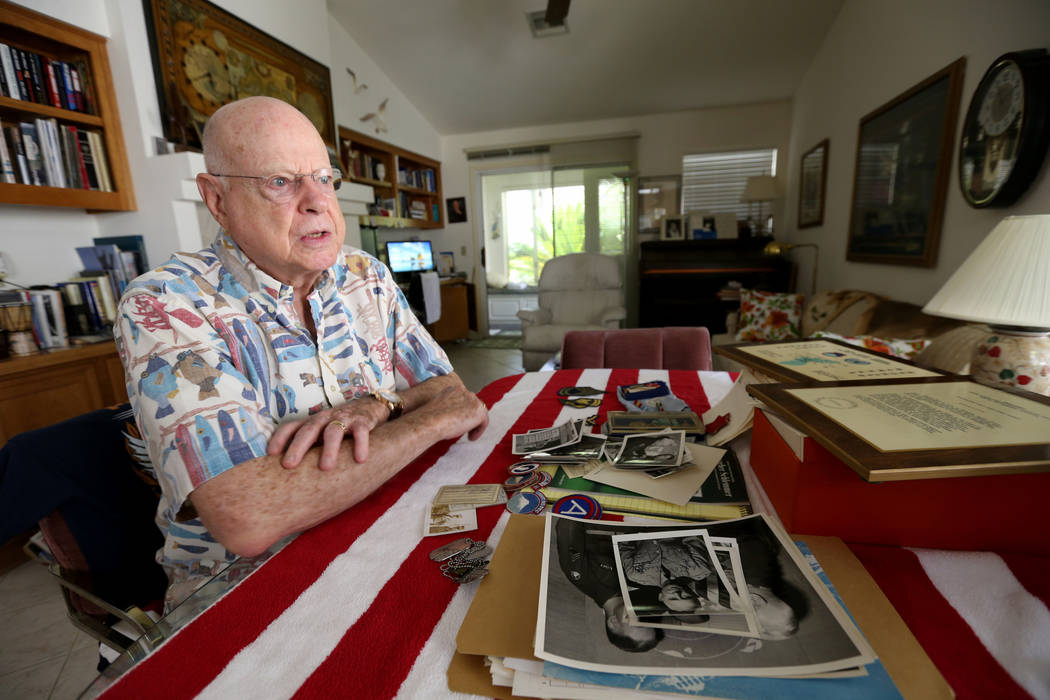
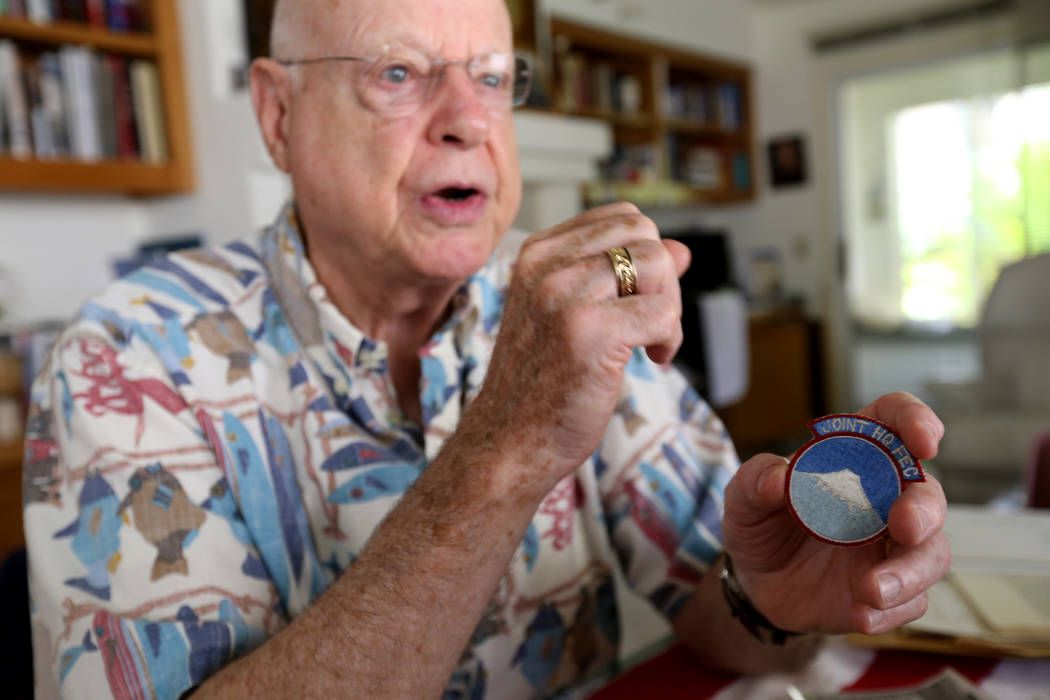
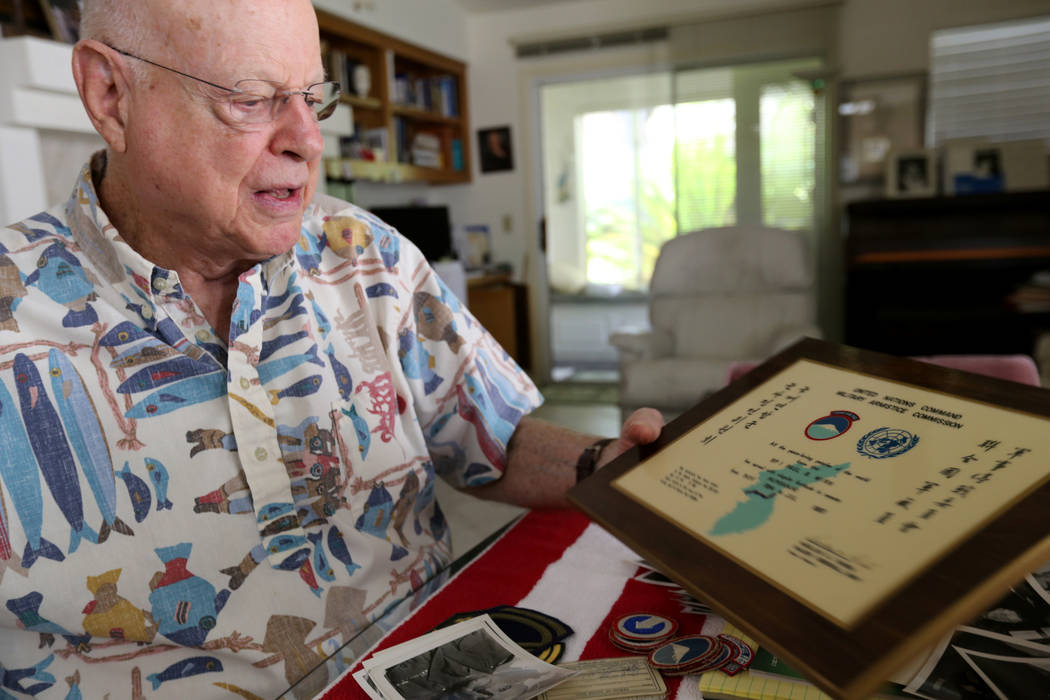
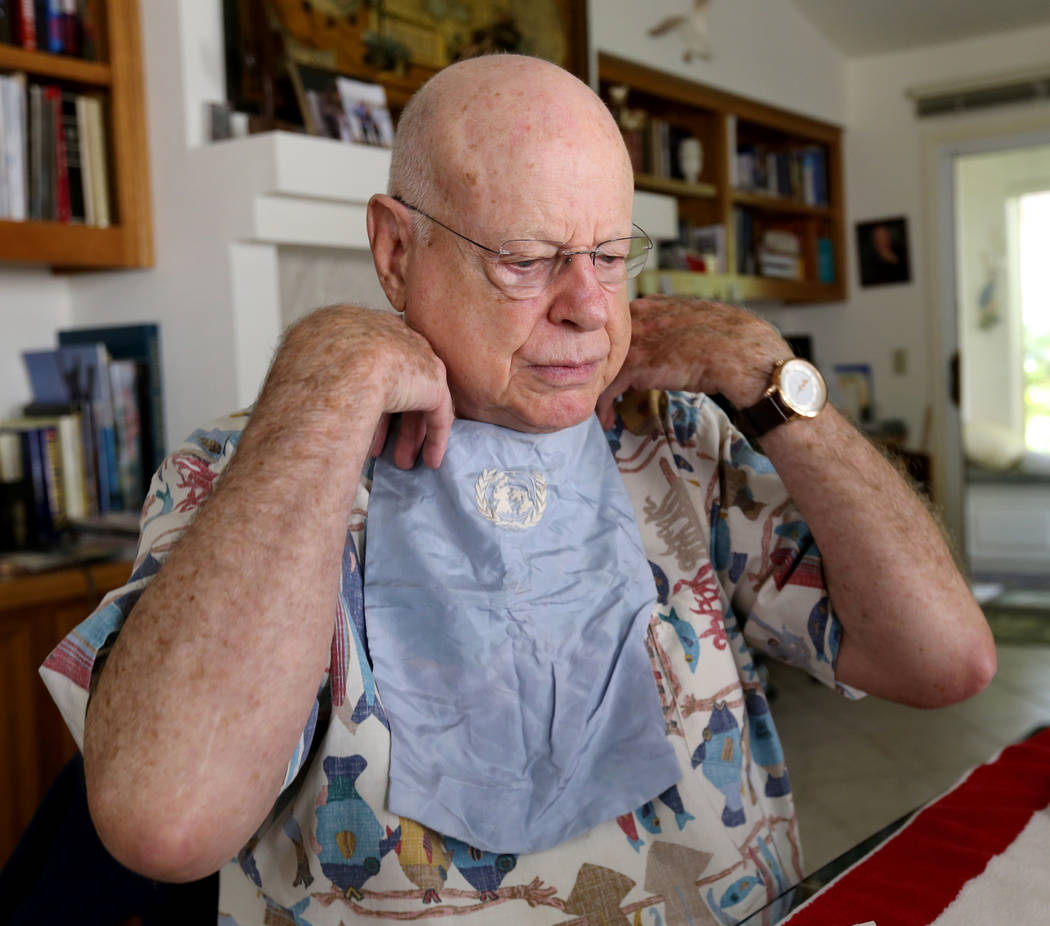
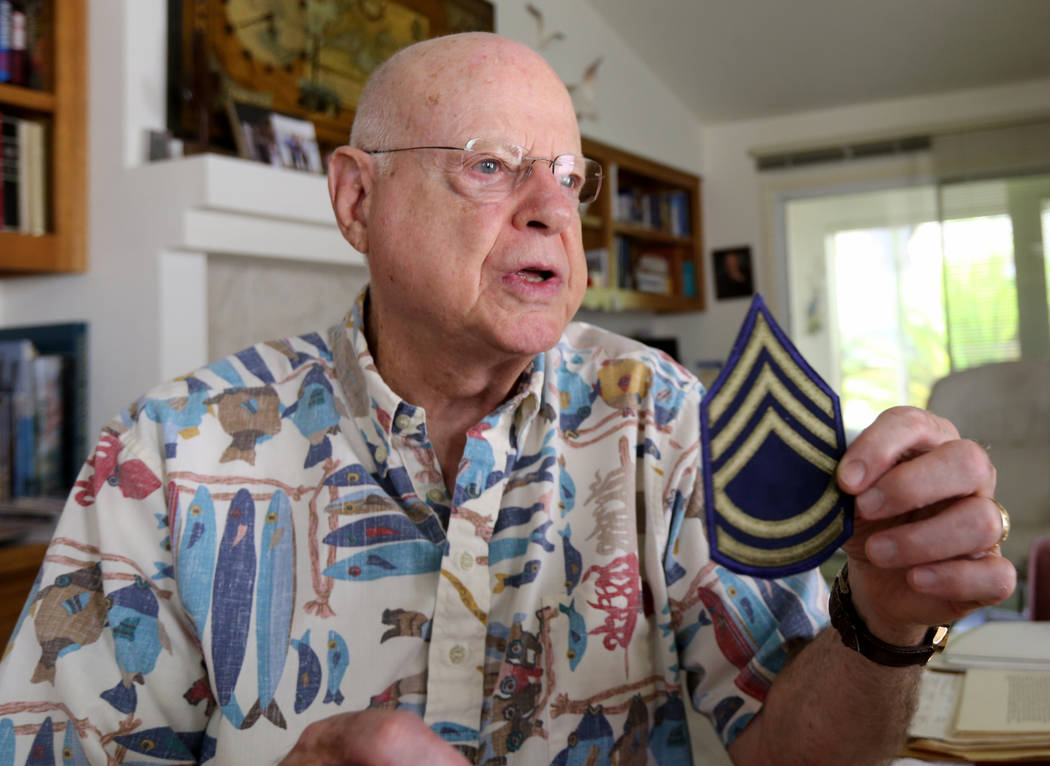
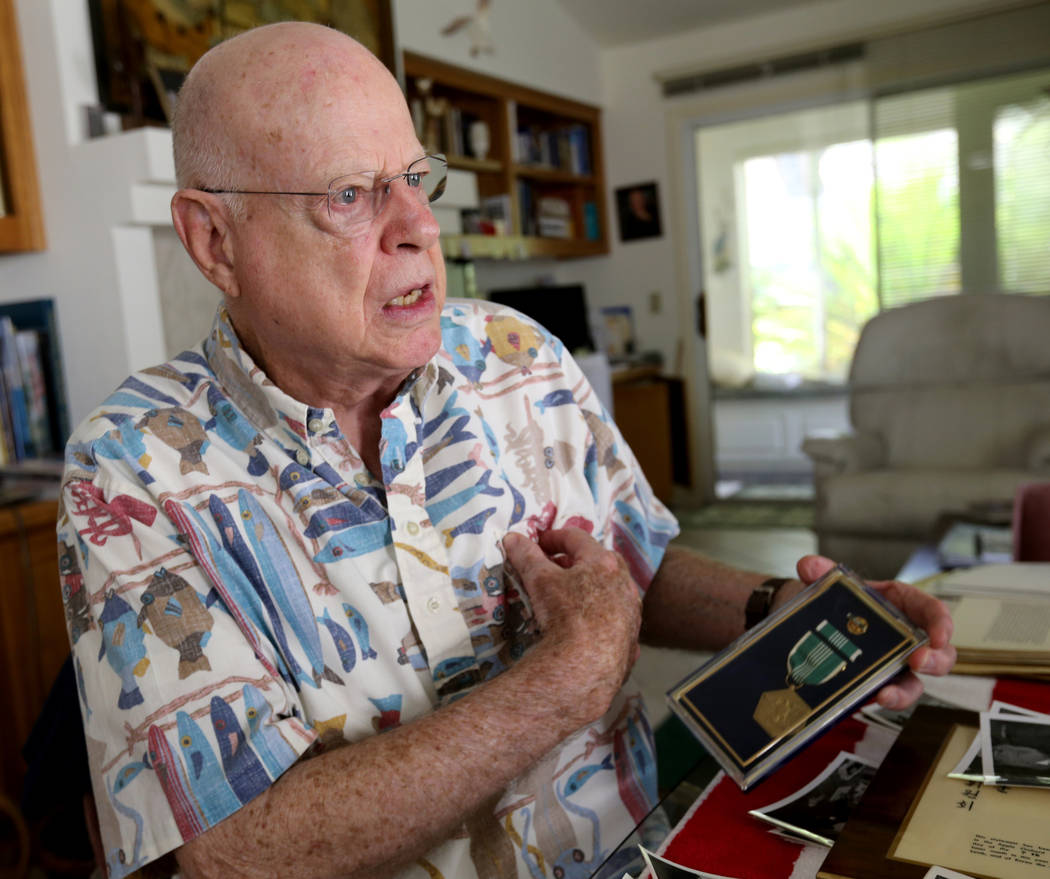
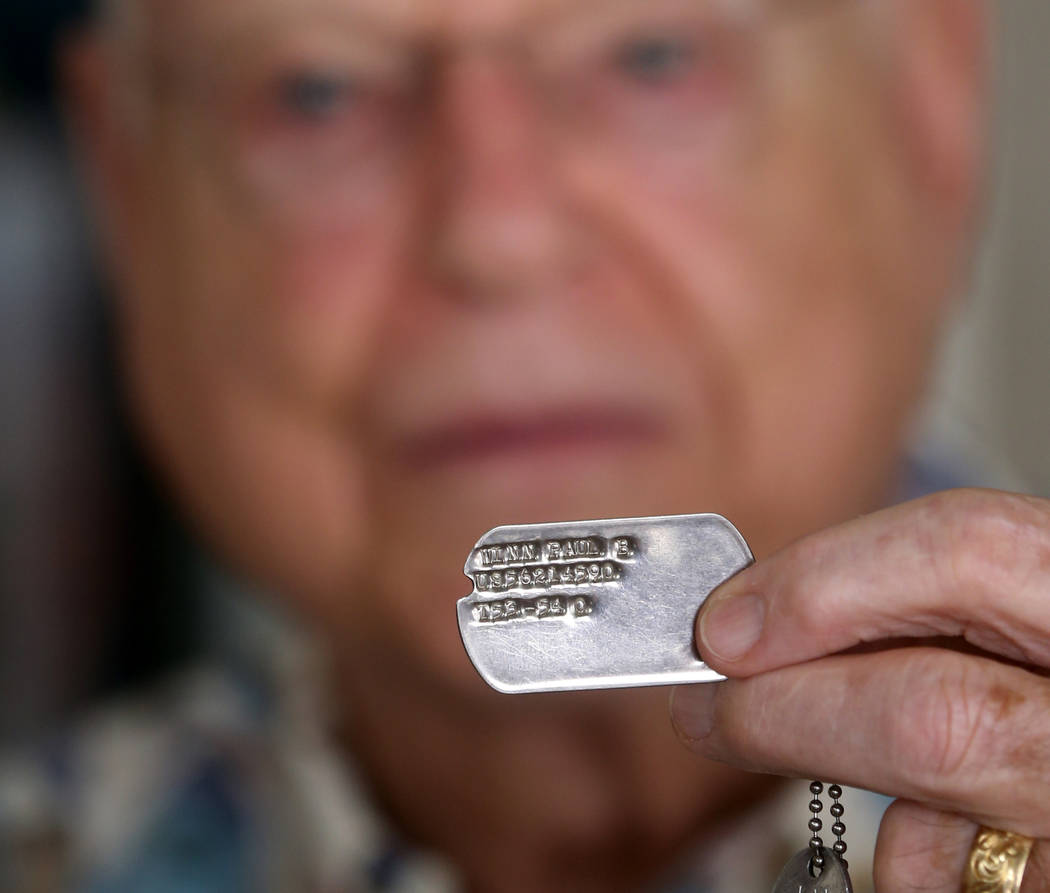
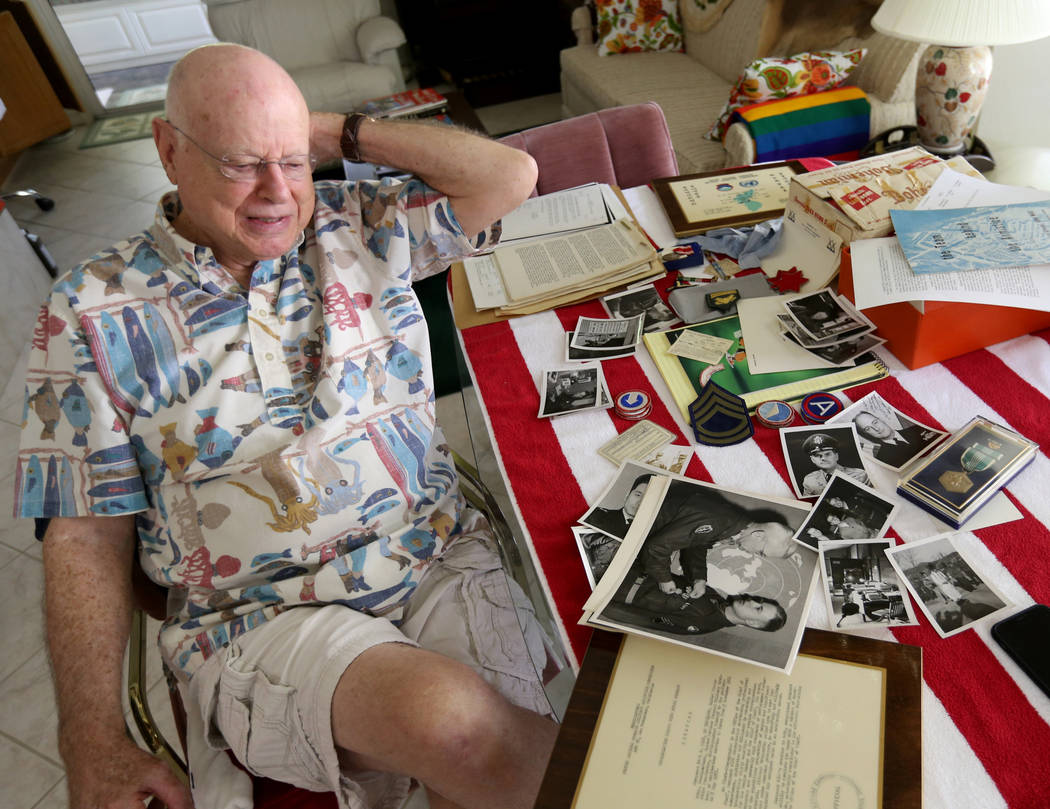
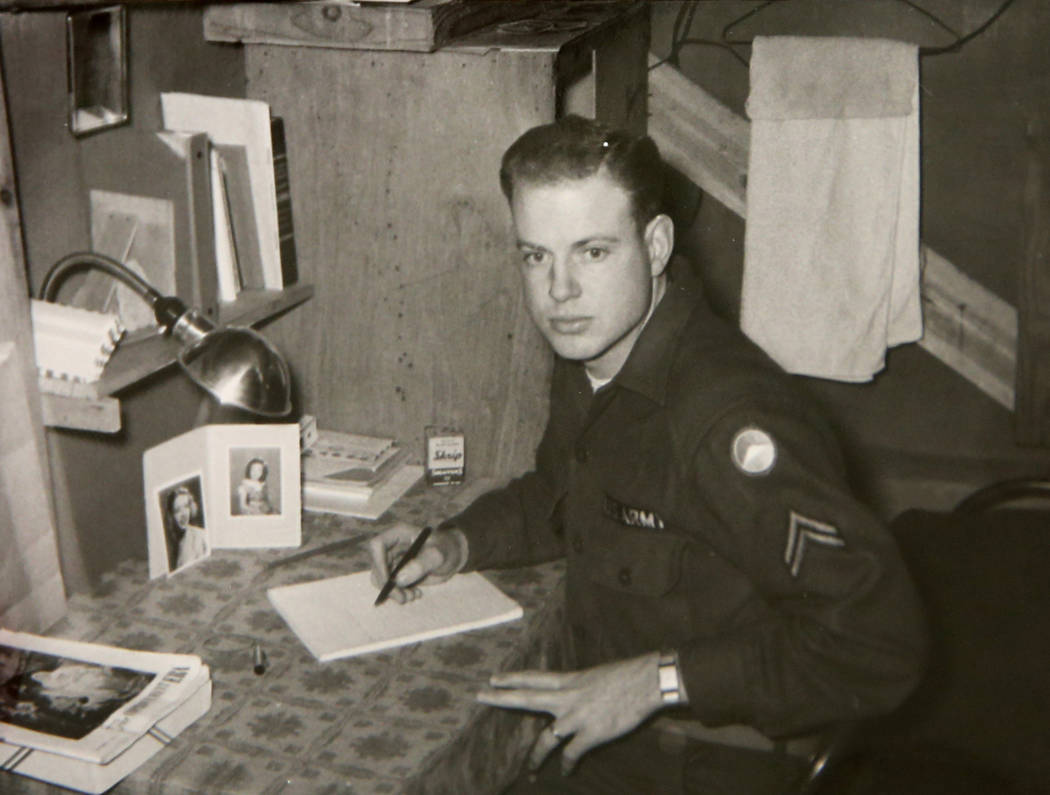
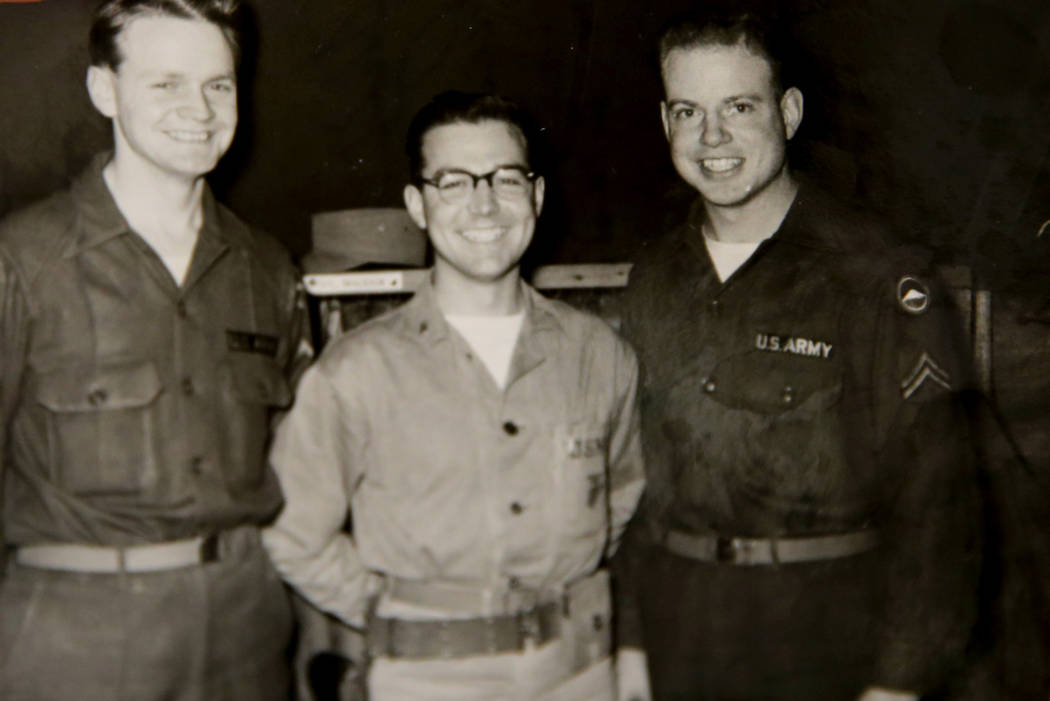
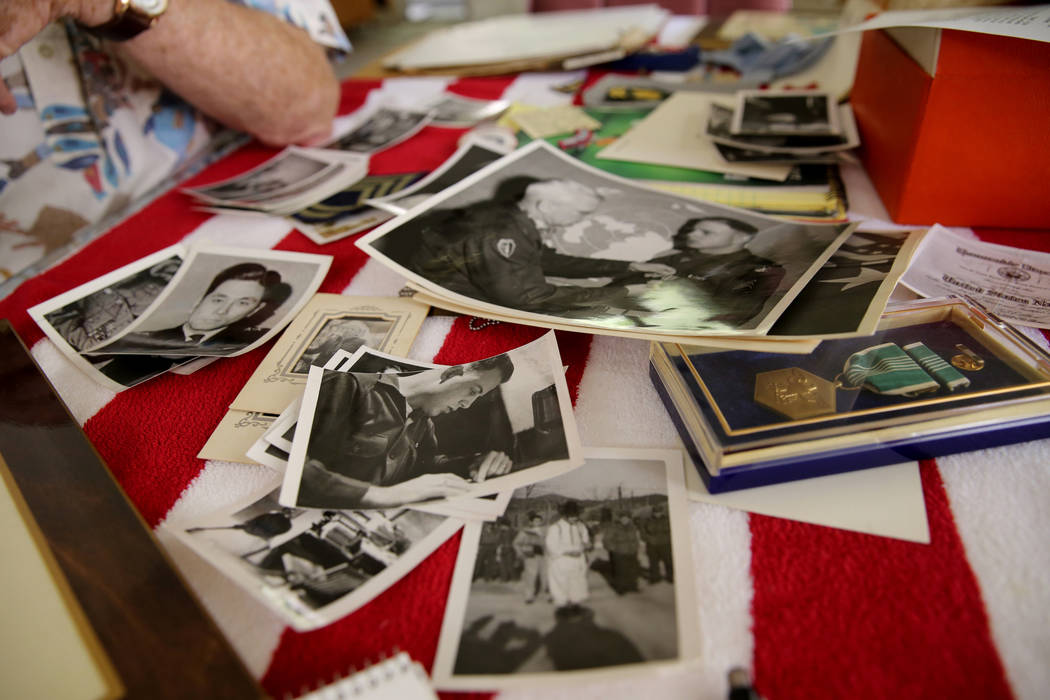
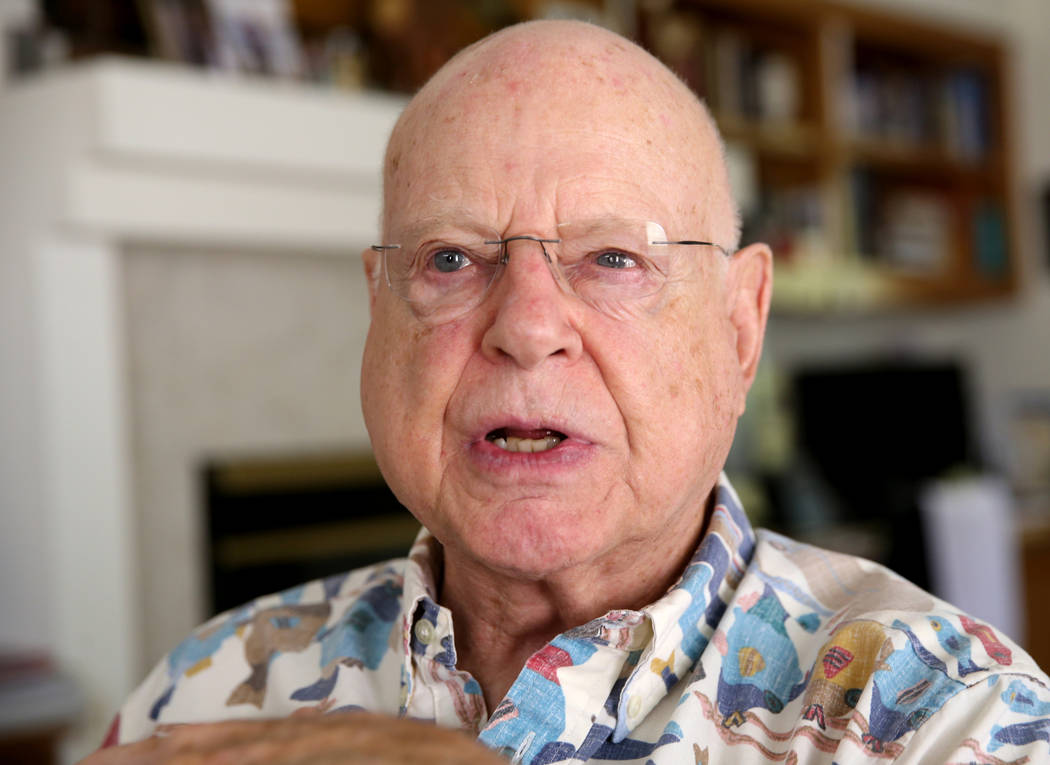
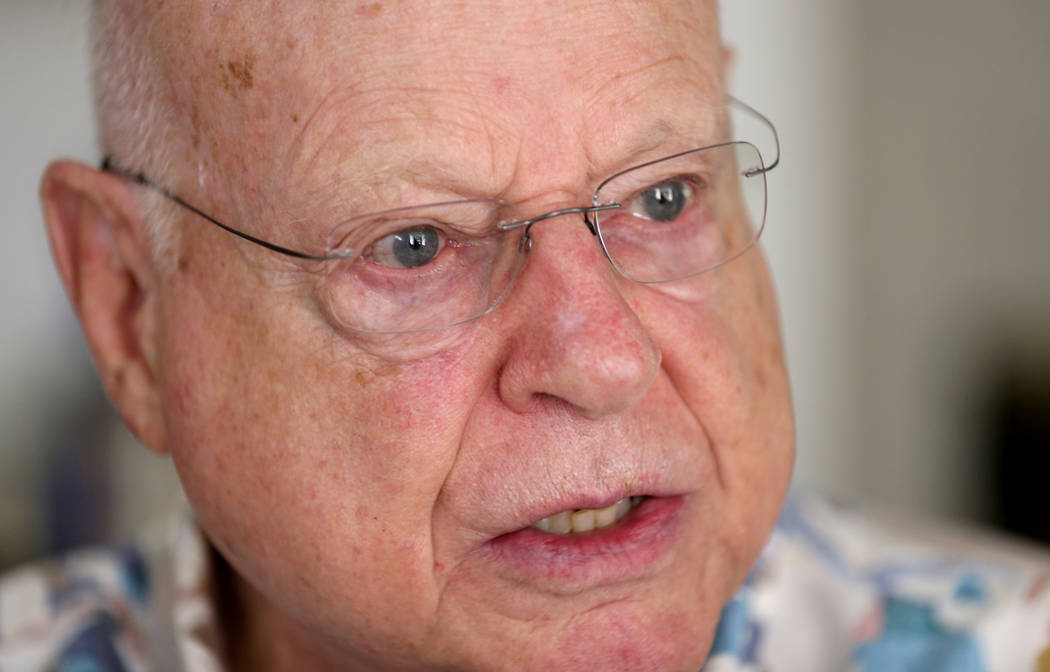
Paul Winn wielded only one weapon during his tour of duty in Korea, and it didn’t fire any bullets.
Instead, his pencil recorded significant — and usually tense — conversations between North Korean, Chinese and American generals in the months that followed the July 27, 1953, signing of the Korean Armistice Agreement.
“The shortest pencil is far better than the longest memory,” Winn, 87, said Friday afternoon in his Summerlin home.
Armed with shorthand skills and the ability to type 120 words per minute, Winn arrived in South Korea 15 months after the ink on the peace accord dried. He was assigned to the U.N. Command Military Armistice Commission, and his Army detachment was located about four miles south of the Demilitarized Zone.
It was there — in a wooden building straddling the 38th parallel — where his generals met with North Korean and Chinese officials.
“If they called the meeting, our officers would try to figure out what they were going to say, and they would figure out possible responses to it,” Winn said. “When they would make their statement, they would make it first in Korean, then in Chinese and then in English, and I would take down in shorthand the English part. It would take you all day to say hello. It was a slow, slow, slow process.”
It was a formal process, too.
“We didn’t walk in and say, ‘Hi, guys,’” he said. “It was tense thing. Particularly when we had an incident that we had — if we would charge them with something, or vice versa. It was a tense time, and really serious.”
As he sifted through pictures, commendations and other memorabilia spread out on his kitchen table, Winn found a document that described one such incident.
The document referenced the “Yellow Sea incident” of Feb. 5, 1955, which resulted in four meetings of the commission. There were “communist charges” that the U.N. Command had violated the agreement.
“It apparently was a serious kind of a breach,” Winn said, but he could not recall what happened.
He remembers a scare that occurred one evening when North Korean or Chinese planes flew over their camp, and another time when the North Koreans brought in Russian MiG fighter jets.
“That was a big deal,” he said. “Under the armistice, neither side could bring in more troops, you could not bring in newer tanks, newer planes. You could replace with the same one, but you couldn’t upgrade.”
Winn served on the commission for only nine months, but in that time, he was promoted to sergeant first class and awarded the Army Commendation Ribbon with Medal Pendant.
One general tried to convince him to re-enlist.
“I wanted none of that,” Winn said, adding that he wanted to get home to his 6-month-old son.
Winn has long since returned to civilian life, but he has regularly followed the developments between the United States and North Korea. He recalls being angry with President Bill Clinton when he approved a plan in 1994 to award more than $4 billion to North Korea in energy aid, and involved former President Jimmy Carter meeting with former North Korean leader Kim Il Sung. Winn remembers thinking that the North Koreans couldn’t be trusted.
“I sat across the table from these people — you cannot trust them,” Winn said. “They cannot be trusted, Jimmy Carter — you give them the money, and they’ll build an atom bomb.”
He said the recent summit between President Donald Trump and North Korean leader Kim Jong Un is the first “ray of hope” that has appeared.
“It’s quite amazing after all that has gone on,” Winn said. “I think Trump is smart enough to say, ‘Hey, we’re not going to trust you. We’re going to trust but verify.’”
Contact Natalie Bruzda at nbruzda@reviewjournal.com or 702-477-3897. Follow @NatalieBruzda on Twitter.













